Search
Search Results

Definition
Minoan Civilization
The Minoan civilization flourished in the Middle Bronze Age (c. 2000 - c. 1450 BCE) on the island of Crete located in the eastern Mediterranean. With their unique art and architecture, and the spread of their ideas through contact with other...

Definition
Cyclades
The Cyclades are a group of islands in the southern Aegean situated between the Greek mainland and Turkey. The name was coined in the Archaic period as the islands form an approximate circle (kyklos) around the central and most sacred island...

Video
The Artist Project: Greek Pottery - Deborah Kass
Deborah Kass on Athenian vases "I think I'm looking at cartoons of another time that I can't decipher anymore." The Artist Project is a 2015 online series in which we give artists an opportunity to respond to our encyclopedic collection...
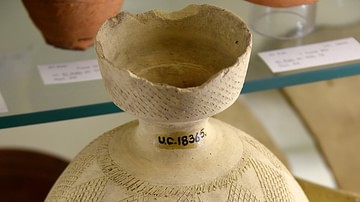
Image
Egyptian Balla Pottery
Ballas ware ovoid pottery pot; they had constricted neck and almost vertical collar above. The surface was incised with decorations. From tomb 263 at El-Kab, Egypt. 12th Dynasty, 1991–1803 BCE. The Petrie Museum of Egyptian Archaeology, London...

Image
Horned-Serpent Pottery Vessel
A pottery vessel decorated with a horned serpent. The serpent, horned serpent, and water serpent figure is common to the legends of all Native American Nations in North America. From the United States or Mexico, c. 1280 to c. 1450. (Art Institute...
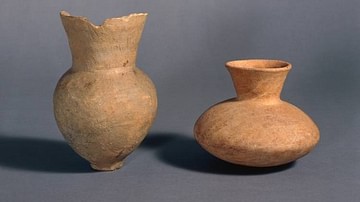
Image
Yayoi Pottery
Unglazed, hand-made red pottery vases from the Late Yayoi Period, 1st-2nd century CE Japan.
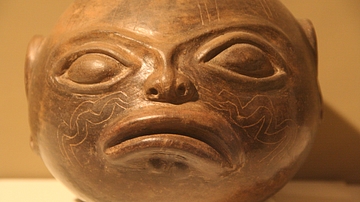
Image
Pre-Columbian Pottery
Pre-Columbian Pottery, Jade Museum, San Jose, Costa Rica,

Image
Longshan Black Pottery Vase
A black pottery vessel produced by the Longshan culture of north-east China, 2nd millennium BCE. Height: 14 cm. (British Museum, London)
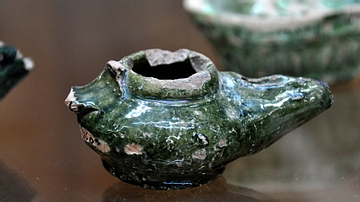
Image
Pottery Lamp
This glazed pottery lamp dates to back to the 6th century CE. From Mesopotamia, modern-day Iraq. The Sulaimaniya Museum, Iraq.
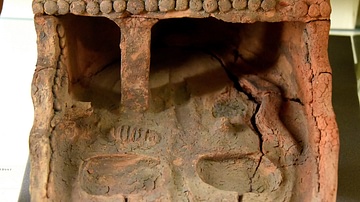
Image
Egyptian Pottery Soul House
Redware pottery depicting the so-called "soul house", from E-Kab, Egypt, 11th to 12th Dynasties, 2024-1700 BCE. It has flattened pellets representing a loop of wood. One of the two pillars which supports the roof is lost. Mr. Petrie thought...